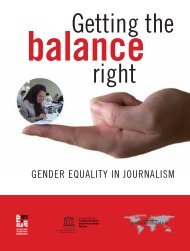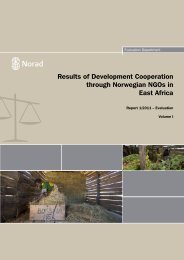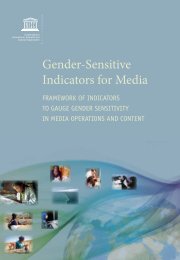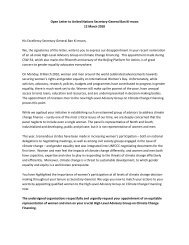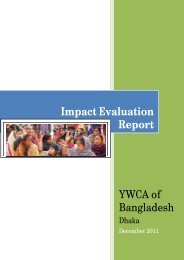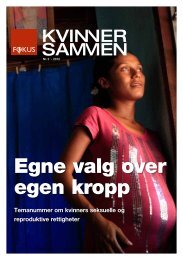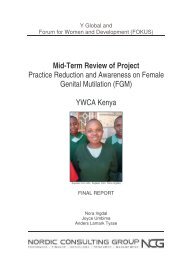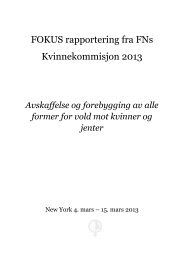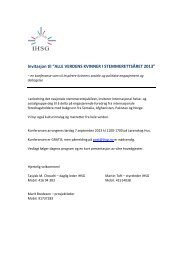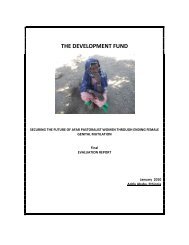TRAINING AND INFORMATION CAMPAIGN ON THE ... - Fokus
TRAINING AND INFORMATION CAMPAIGN ON THE ... - Fokus
TRAINING AND INFORMATION CAMPAIGN ON THE ... - Fokus
Create successful ePaper yourself
Turn your PDF publications into a flip-book with our unique Google optimized e-Paper software.
concern for women’s sexuality. A number of scholars and activists, however, have concluded that the<br />
most “sensitive” and least controversial angle from which to argue for the elimination of the practice is<br />
that of the right to health and bodily integrity.<br />
A number of African nations have passed legislation against FGM, although enforcement mechanisms<br />
vary. Many feel, however, that outright legislation against the practice, especially during the early stages<br />
of abandonment, is highly problematic as it pits community members against each other, penalizing<br />
individuals acting in good faith within their cultural framework, and potentially driving the practice<br />
underground and reducing the likelihood that those who need medical attention will receive it.<br />
The “development and modernization” approach suggests that overall improvements in socioeconomic<br />
status and education, especially for women, will have far-reaching social effects, including a reduced<br />
demand for FGM. The empirical data do not consistently support this conclusion, however, and many<br />
argue that changing social conditions will not automatically change strongly held beliefs and values<br />
regarding female “circumcision,” but that targeted intervention issues on the harmful effects of the<br />
practice are needed as well.<br />
The “convention theory” of abandonment argues that practices such as FGM are conventions locked<br />
in place by interdependent expectations in the marriage market and that once in place such conventions<br />
become deeply entrenched, since those who fail to comply also risk failing to reproduce (Mackie 2000).<br />
Therefore, education about adverse consequences does not suffice, but must be accompanied by a<br />
collective convention shift. This approach, which has been carried out in practice by the Senegalese<br />
NGO Tostan, uses basic education leading to public declarations in which communities who historically<br />
intermarry join in denouncing FGM.<br />
It is common for activists to argue that one of the reasons that FGM is so “entrenched” is that it<br />
constitutes an important source of income for those performing the procedure. Consequently, some<br />
eradication efforts have focused in part on schemes to compensate circumcisers for lost income. Critics<br />
(see Mackie 2000) argue that this is a misguided functionalism: although circumcisers immediately do<br />
cause circumcision of girls, they do not cause parents to want circumcision for their daughters and<br />
thus do not directly cause the continuation of the practice. Others point out that circumcisers may<br />
receive compensation for not practicing while continuing to do so in secrecy. However, in contexts in<br />
which circumcisers are prestigious community leaders, their genuine conversion is crucial and it may<br />
be an important strategy to provide at least symbolic, and perhaps limited material, support to those<br />
circumcisers who have already had a change of heart, thus motivating them to stick to their decision,<br />
which is distinct from “bribing” people to stop.<br />
Some groups and communities have experimented with alternative, non-circumcising rituals, for<br />
example in Kenya and The Gambia. The success of such an approach has not been documented,<br />
however, and there are reports from Kenya that girls who have undergone “ritual without cutting” have<br />
later been coerced into actual genital cutting.<br />
While these approaches have been discussed separately, in reality most campaigns combine a variety<br />
of strategies into an integrated approach.<br />
12




